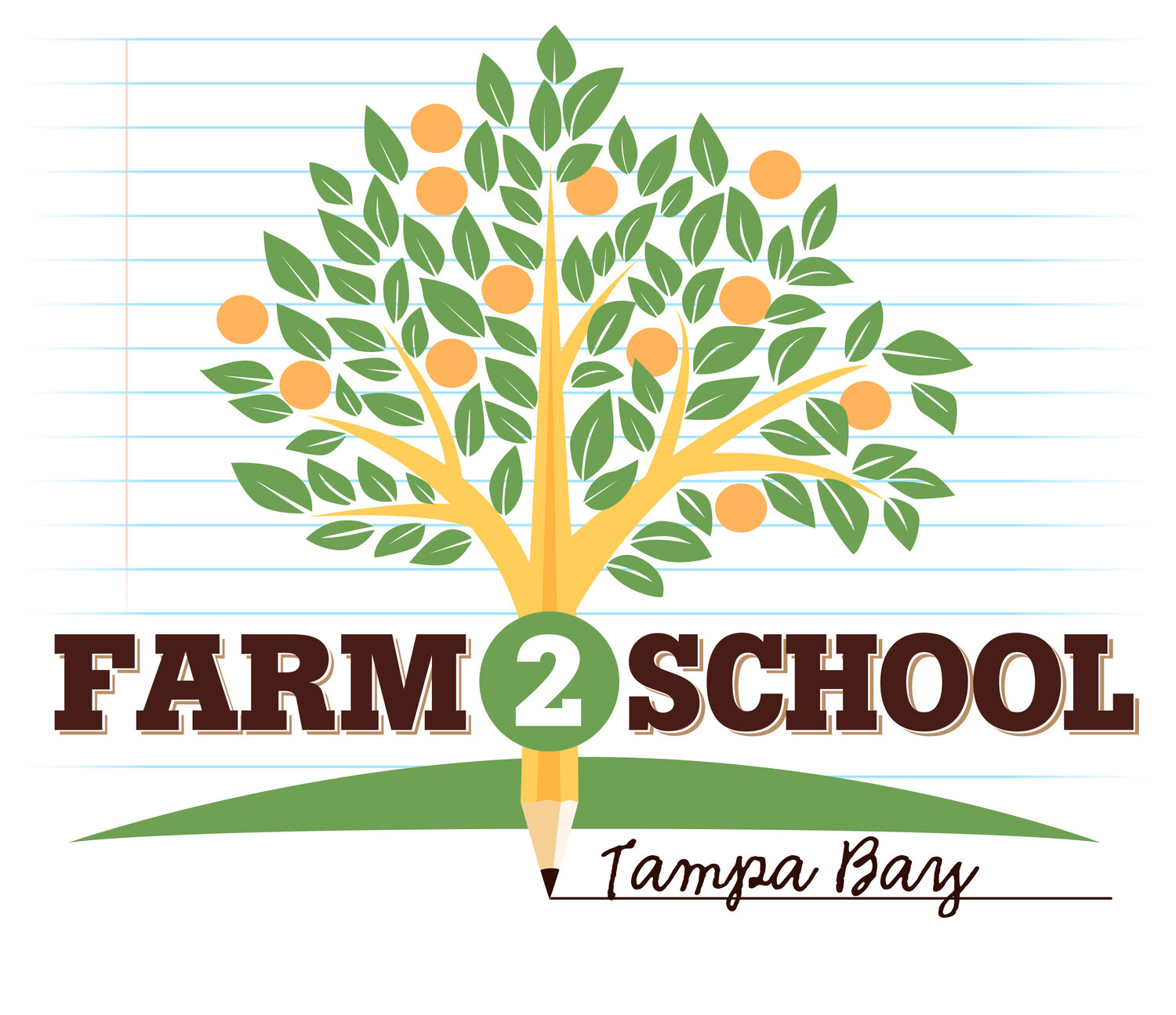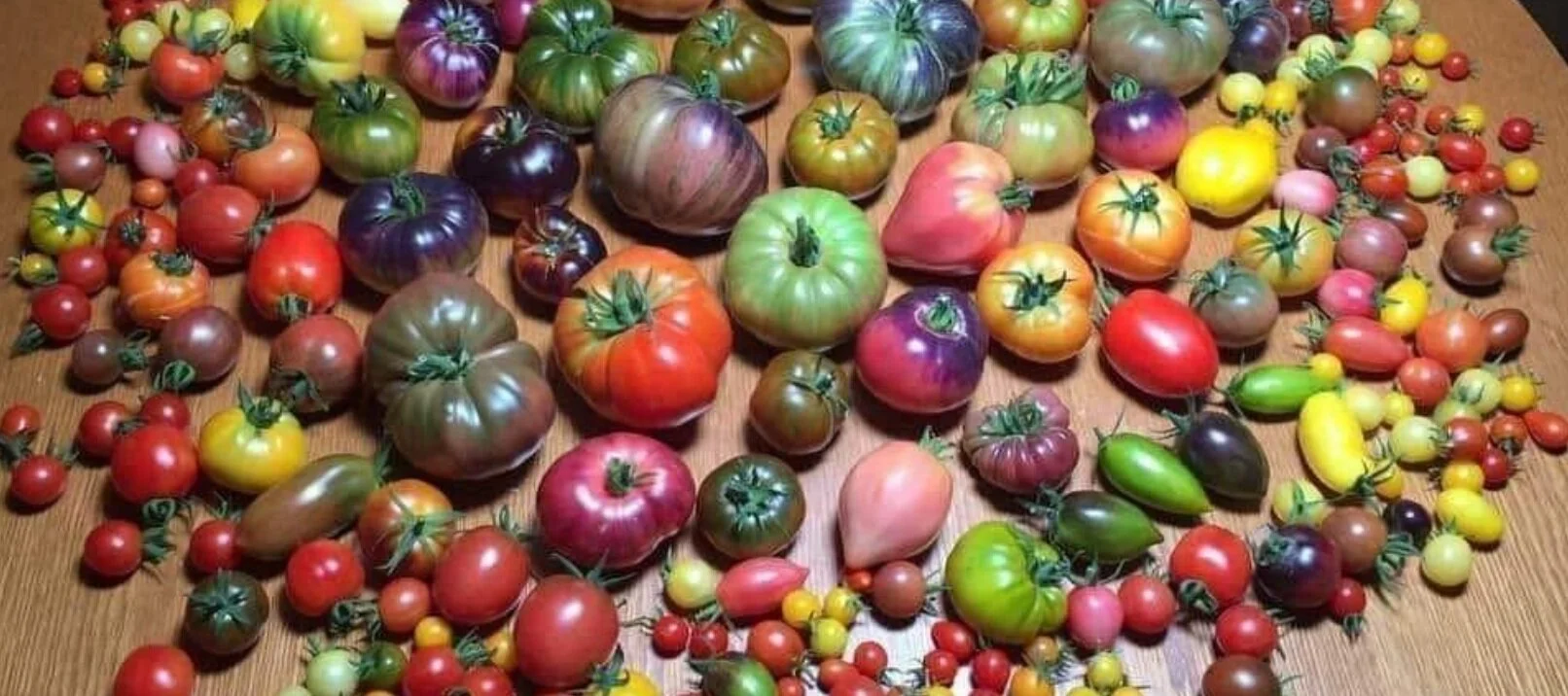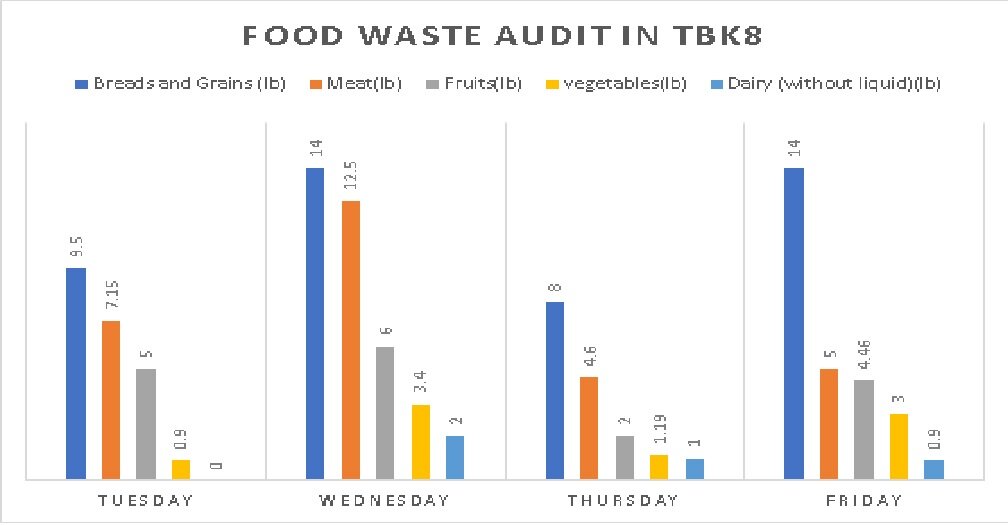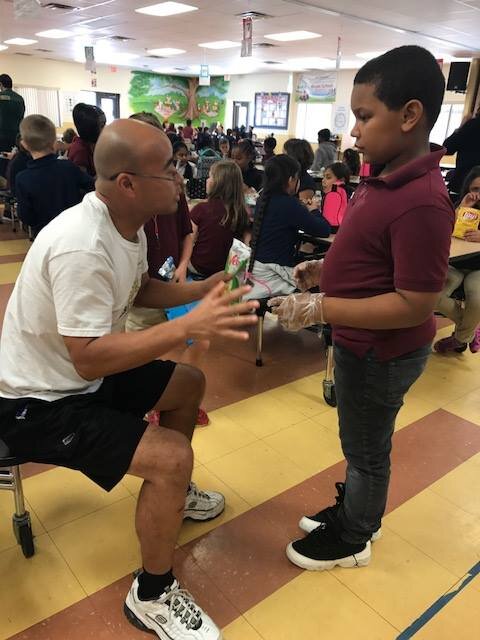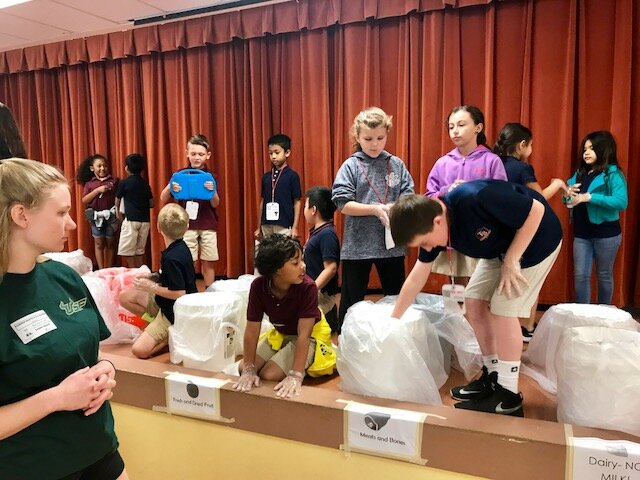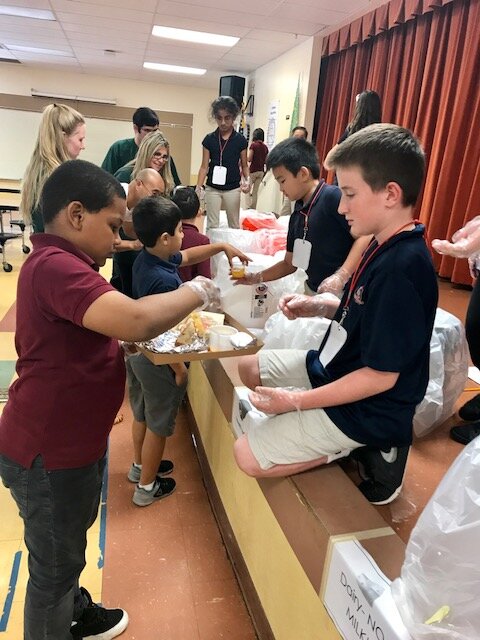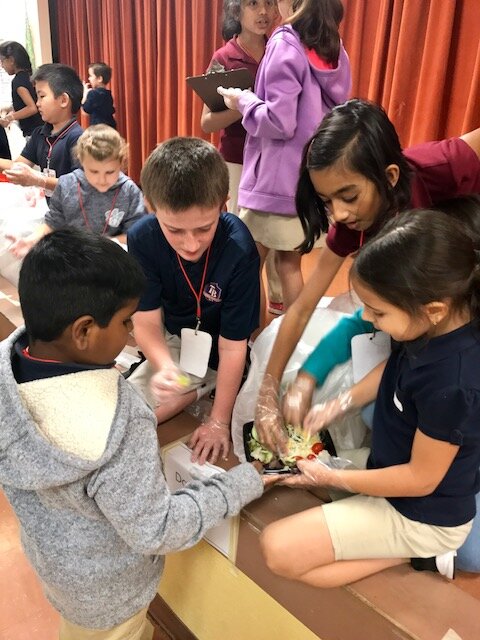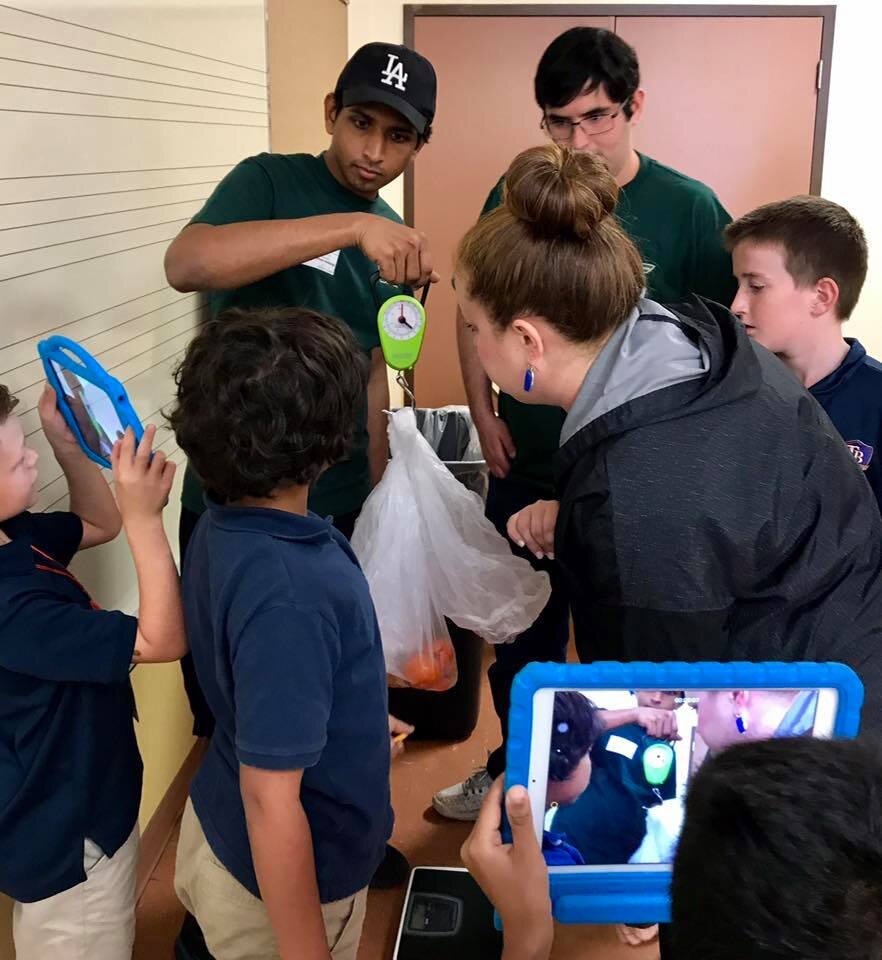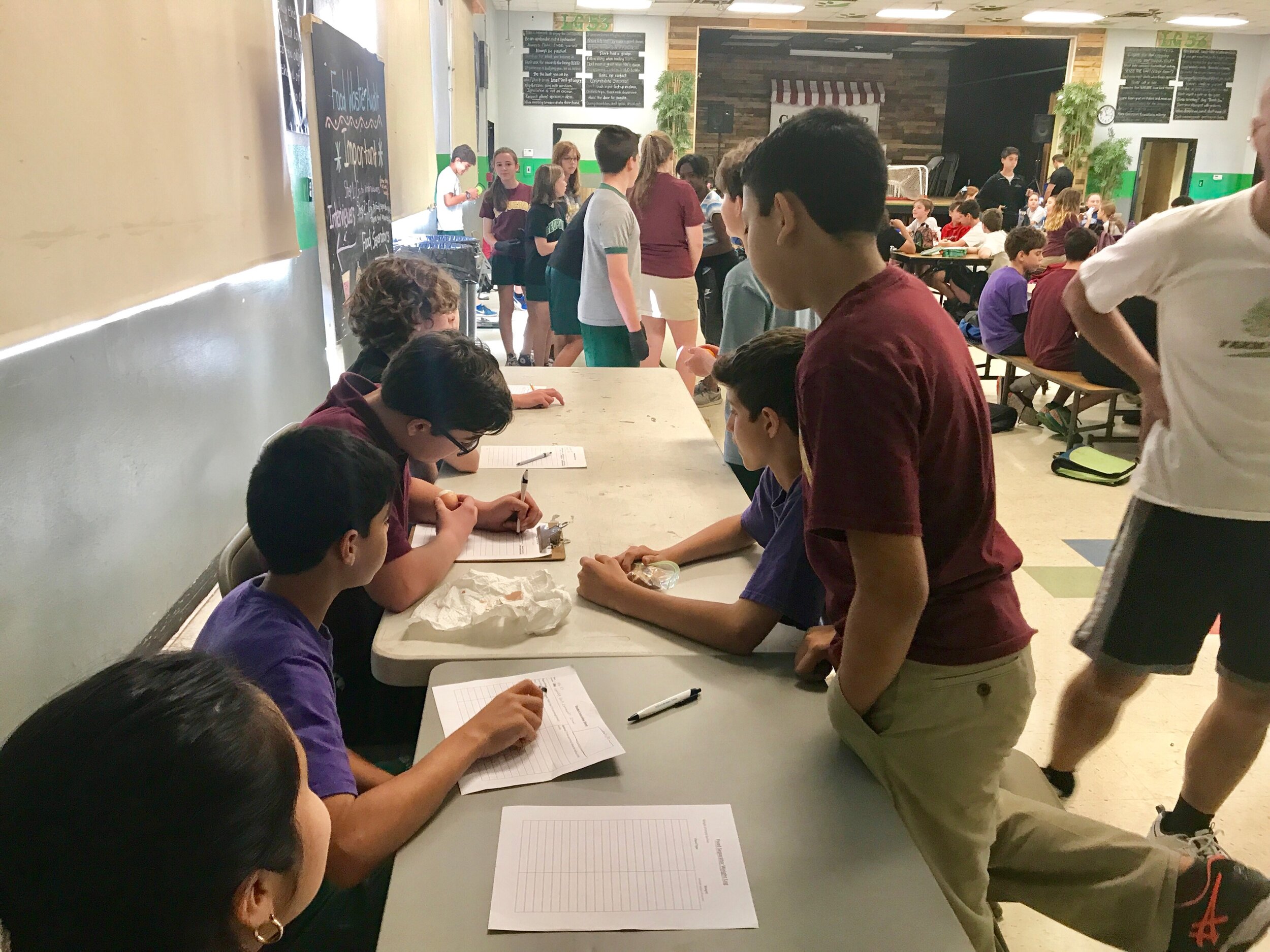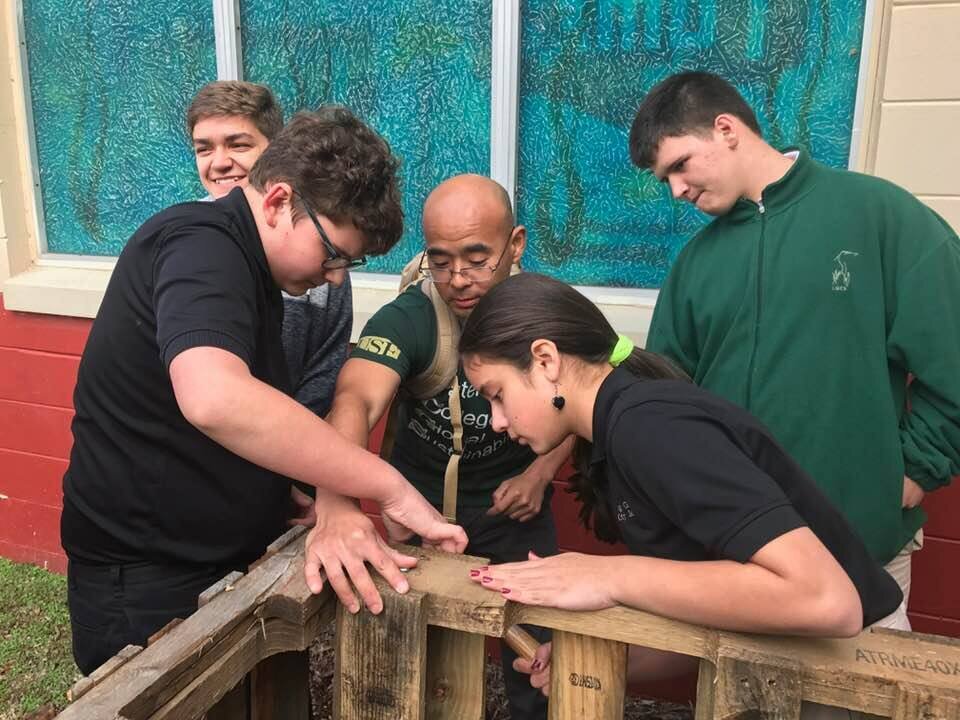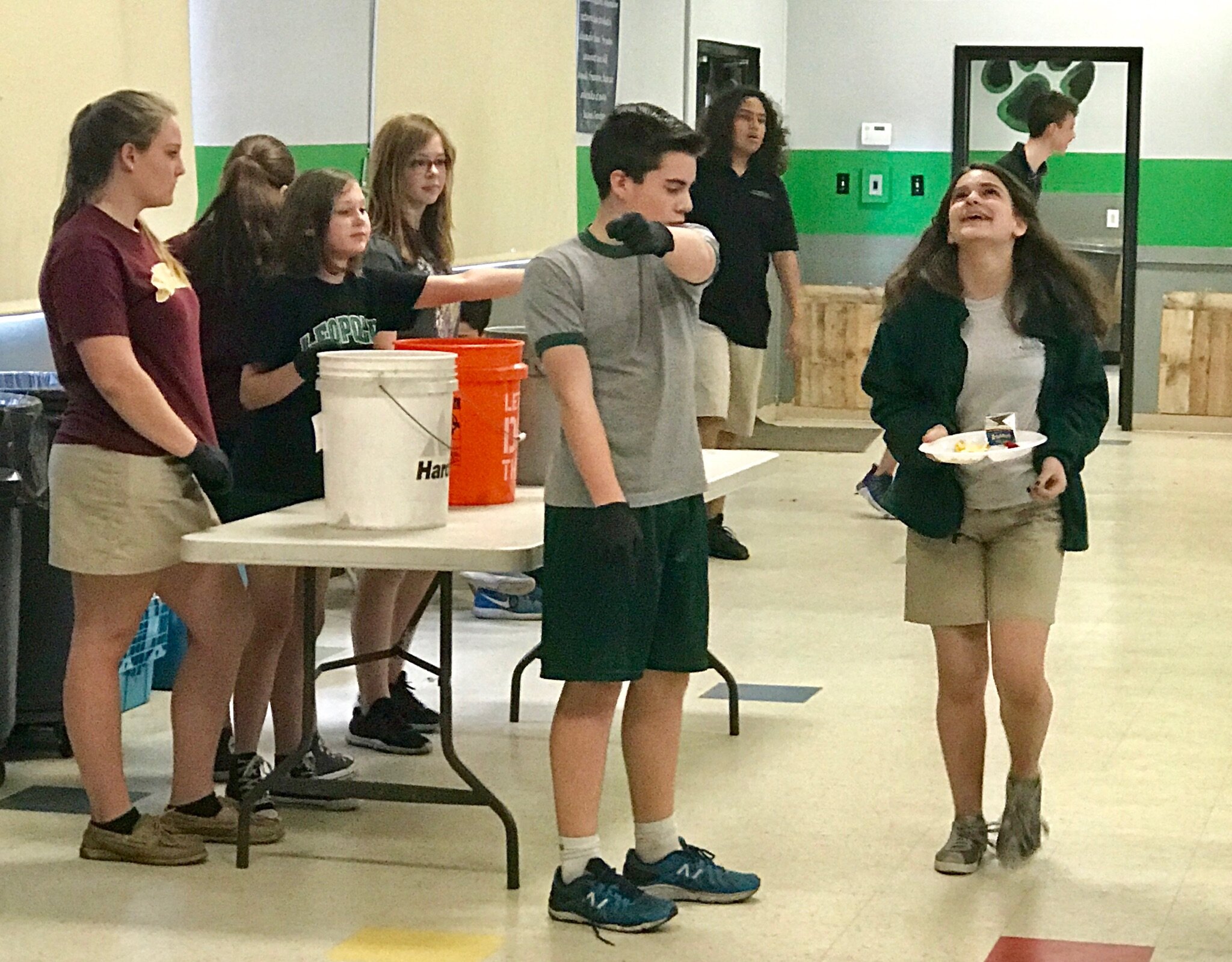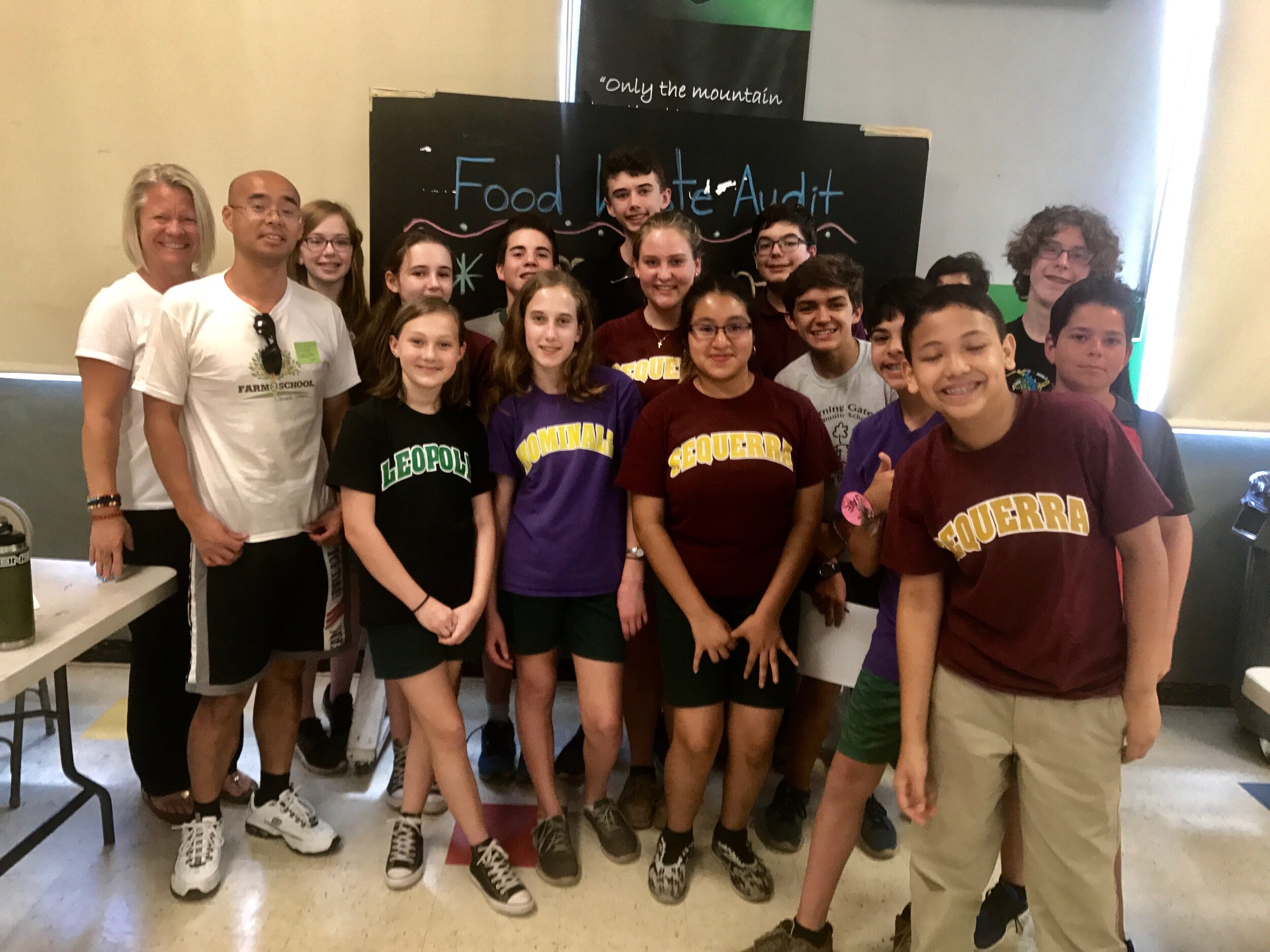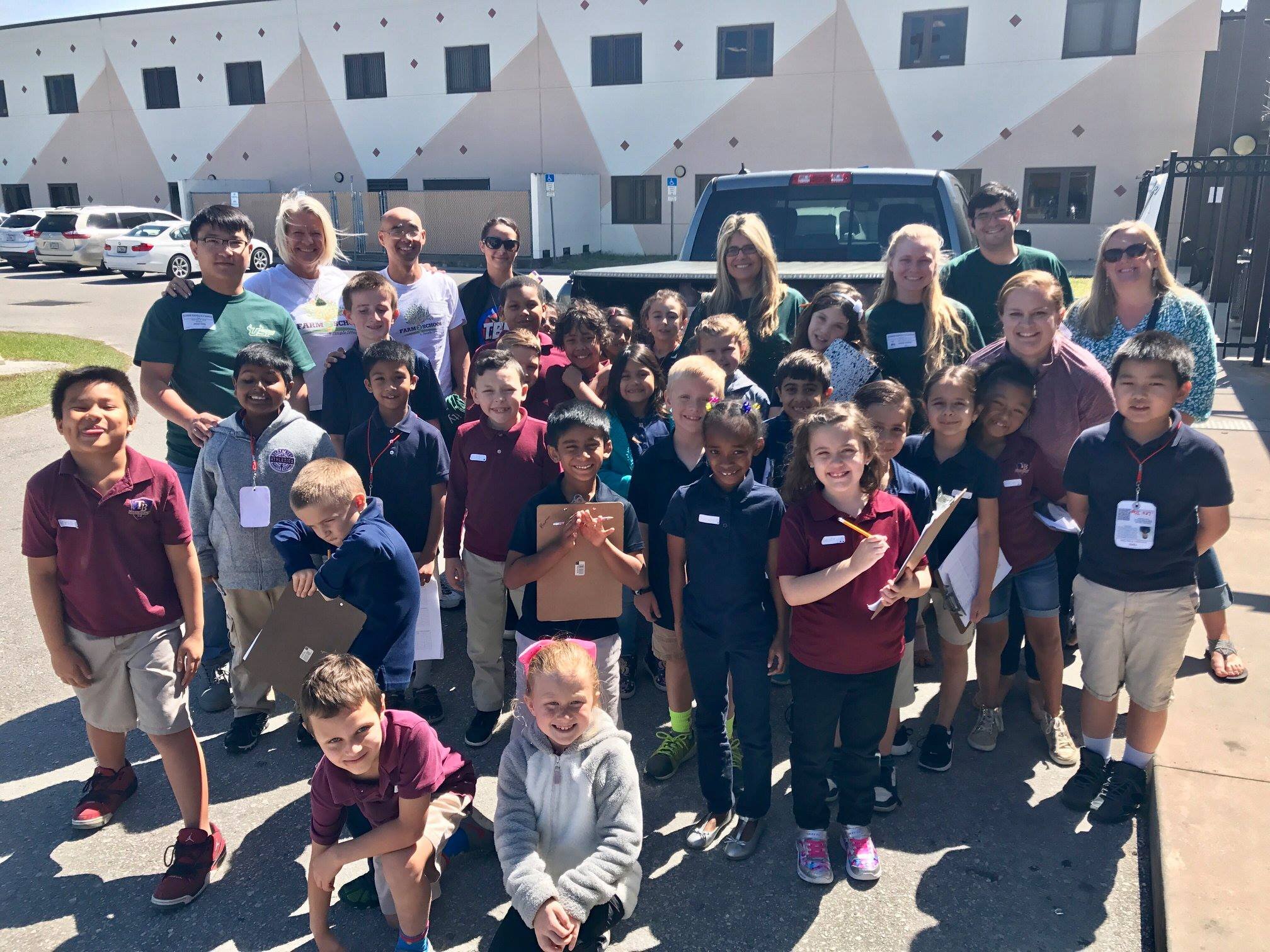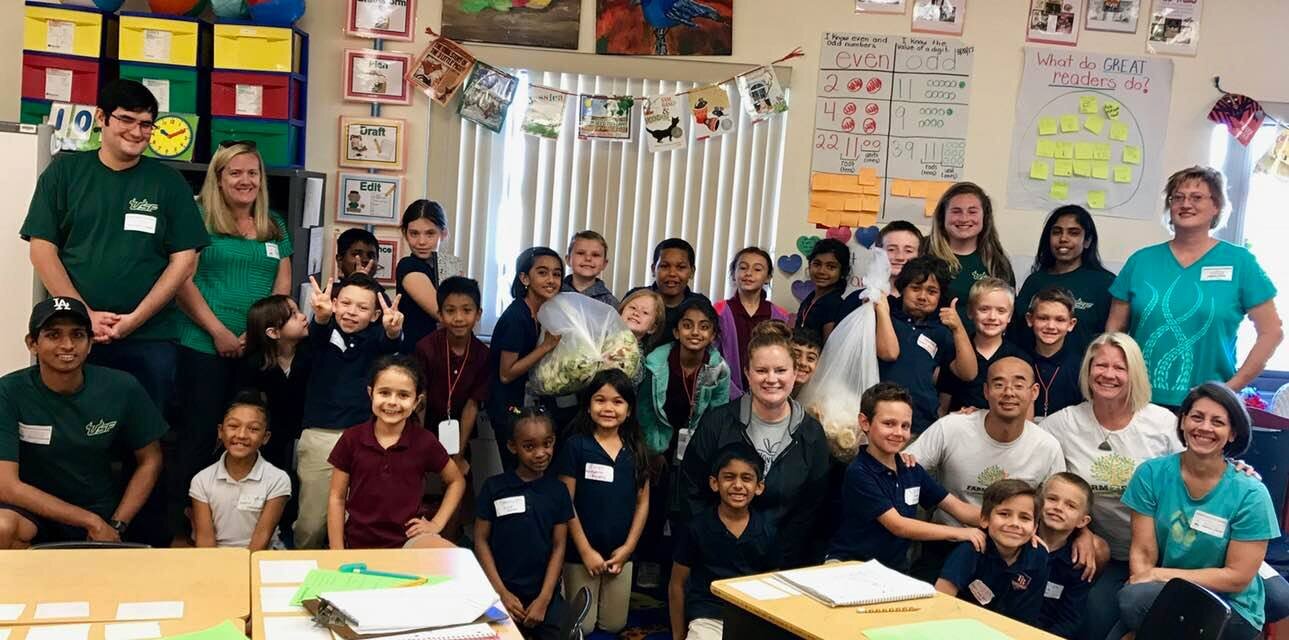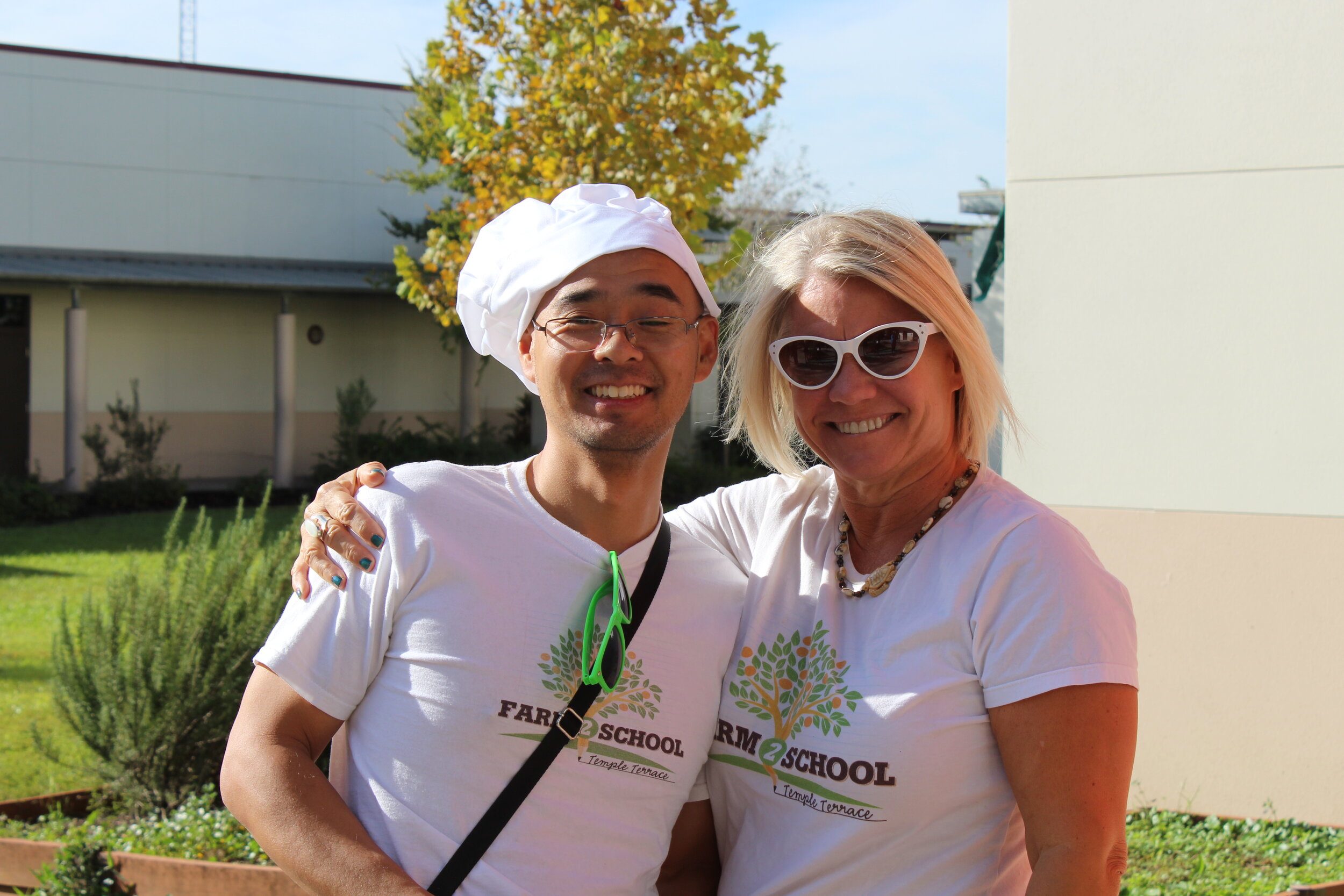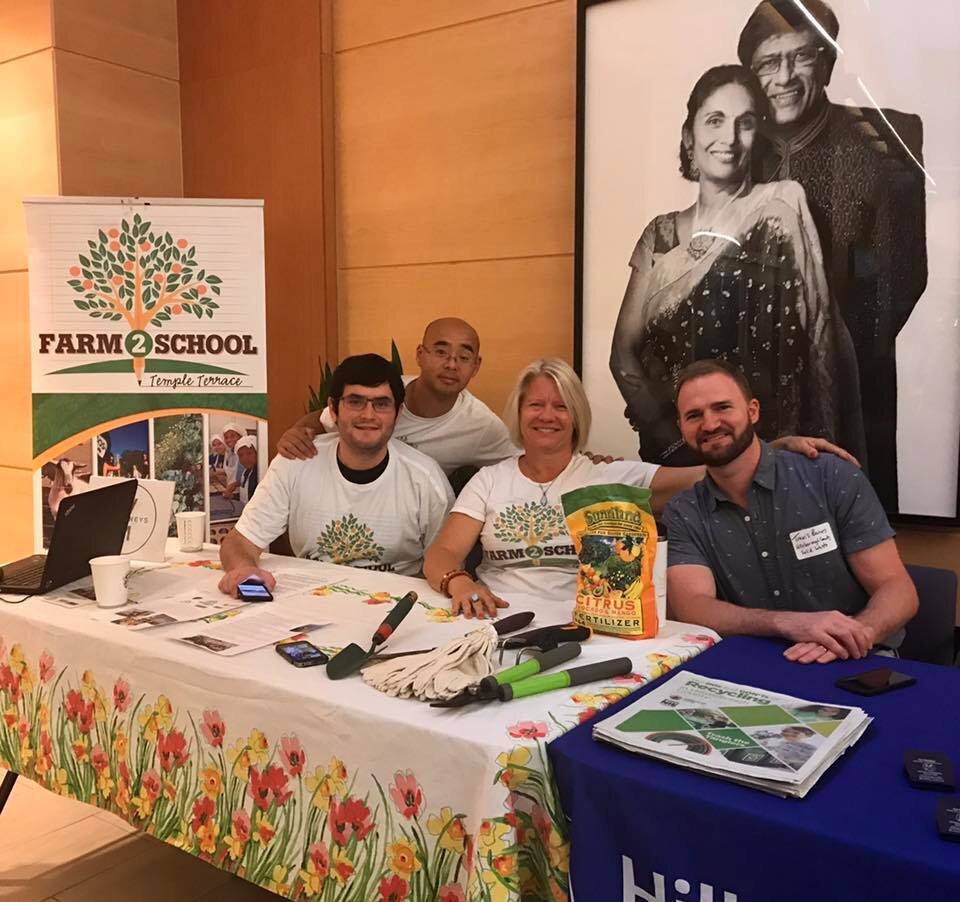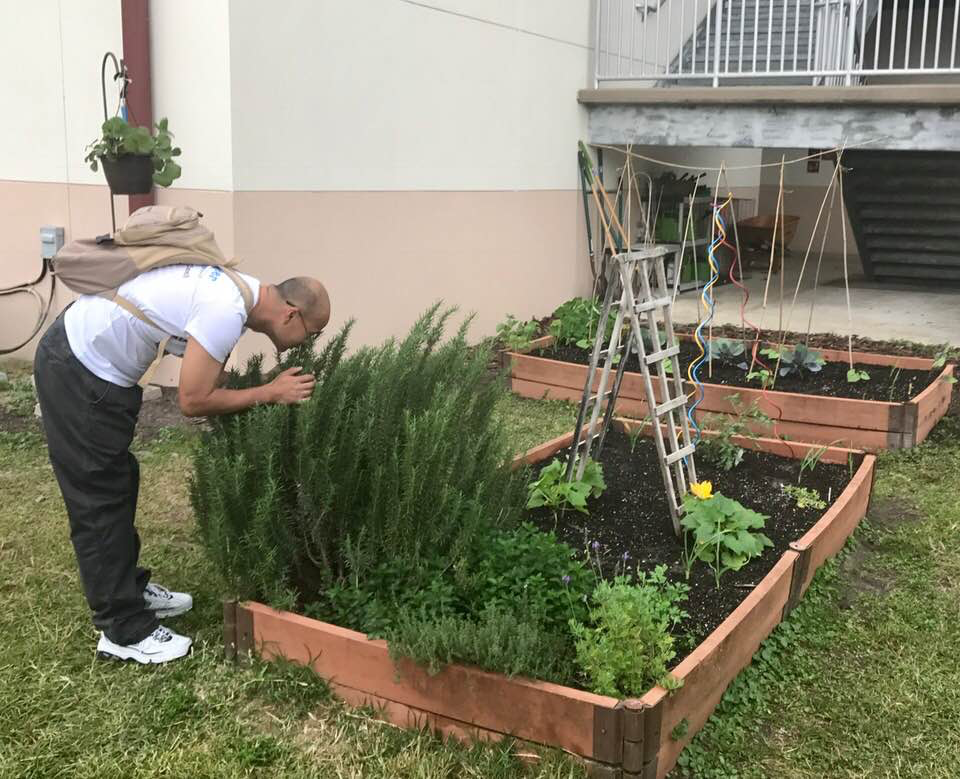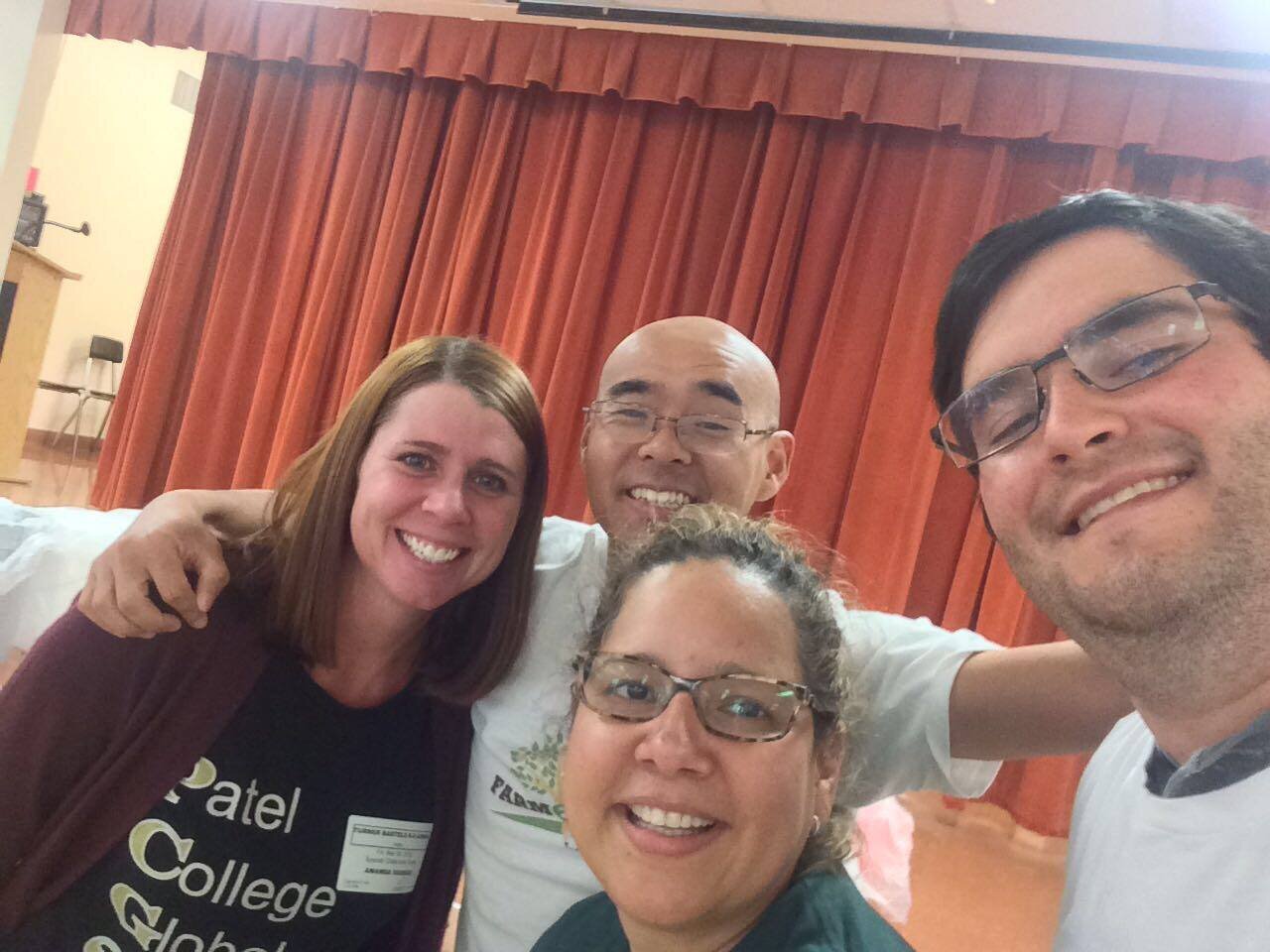EPA Food Waste Audit Information
In the spring semester of 2018, F2S Sustainability intern Li Zhu led a team of USF Patel College of Sustainability graduate students in performing EPA Food Waste Audits at two local schools, Turner-Bartels K-8 School and Learning Gate Community School.
These four day audits provided students with an extensive hands-on learning experience to understand the problem of food waste. The 2015 EPA Guide used to teach students to conduct an audit can be accessed here: EPA Guide to Conducting Student Food Waste Audits.
“One of the most satisfying and productive accomplishments of my work with Tampa Bay Farm 2 School was leading the food waste audits. Organizing a team from USF Patel College to perform these four-day audits was a great joy. Working with elementary and middle school students to help them to understand the problem of food waste and to identify solutions." - Li Zhu
Li used the EPA Guide to Conducting Student Food Waste Audits, it is an excellent resource for anyone looking to examine their school’s food waste.
Building and supporting school gardens is the foundation of the TBF2S mission to engage youth in hands-on agriculture activities. To build on that foundation, Li Zhu offered food sustainability lessons including teaching students at Turner-Bartels K-8 school and Learning Gate Community School how to conduct an EPA Student Food Waste Audit . His goal was to teach students about food waste. He used the audit to measure food waste and helped students gather data by interviewing their classmates about why they are throwing food away. He concluded the audit by helping students analyze the data they collected to come up with solutions to reduce the waste in their cafeterias.
Food Waste Reduction
In the United States, food that is not consumed is more often than not trashed and ends up in a landfill. It is estimated that only 6.3% of food waste was diverted from landfills. The EPA estimates that food is the largest source of waste in everyday trash, larger than any other single material, making up 22% of discarded municipal solid waste (Source). Some studies suggest that if food waste were to be completely eliminated, greenhouse gasses would be reduced by as much as 11% (Source).
When food enters a landfill, it simply rots. It cannot properly decompose, as landfills do not provide the correct conditions for it to breakdown and turn it into soil. It creates methane, which is a major contributor to climate change. Composting diverts food waste from landfills. Composting allows for the natural breakdown of food to occur, thus producing nutrient-rich soil without releasing CO2.
Before shopping: Plan ahead!
The best way to prevent waste is be prepared to use everything you buy. Make a list of meals and snacks you are going to make for the week, list the ingredients you do not already have at home, and only buy things you know you are going to use in your pre-decided recipes. If something happens or you did not use an entire package of the fresh foods you purchased, there are many ways you can preserve the foods or alternative ways to use them before they go bad.
Food Scraps: Regrow, compost, or keep!
Foods like celery and lettuce can be regrown from the ends you cut off. Simply place the bottoms in water, changing the water every other day. They will start to regrow and roots will appear! Be sure to leave in a sunny spot. They can stay in water or be placed in soil after roots are about an inch long. You can also take seeds from peppers that you would normally discard and plant them in soil to start a new plant! Check out this site for other foods you can regrow!
Composting is not as hard as you think! Check out our tips on this page, or if you are not able to do it at home, look for someone in your area that does! Makesoil.org is a great resource, and you might make some new friends!
Veggie scraps (including skins and tops) can be saved to make homemade vegetable stock. It’s easy! Simply keep a gallon-sized bag in your freezer and add to it every time you chop an onion, use carrots, etc. Avoid cruciferous veggies, as they can create a bitter taste after they are simmered for a long time. Once your gallon bag is full, add some garlic (if you don’t already have lots of garlic skins/scraps) and other spices to taste and simmer the scraps in water for an hour or more. Strain for broth. Toss chunks into your compost! There are lots of other uses for parts of vegetables that you may not normally use, but can be used in other ways you may not realize. Do a quick google search to see what you can make!
In the US, food waste has been measured to be 30-40 percent of the total food supply. “The single largest component going into municipal landfills, food waste quickly generates methane, helping to make landfills the third largest source of methane in the United States.” (USDA, Office of the Chief Economist, Food Waste Challenge) This waste has many negative impacts. Families experience food insecurity, methane contributes to climate change and all the resources of land, energy, water and labor needed to produce the food are also wasted. The earlier kids understand the problem, the sooner we'll collectively find and implement solutions.
Does the US have a food loss and waste reduction goal?
YES!
On September 16, 2015, the United States announced the start of its first national food loss and waste goal. The plan called for a 50-percent reduction of food waste by 2030. The EPA published a Food Waste Audit guide to help students measure cafeteria food waste and develop solutions to recommend to their schools.
Food Waste Audit Blog / 2018
by Li Zhu
Building and supporting school gardens is the foundation of the TBF2S mission to engage youth in hands-on agriculture activities. This year, Patel student volunteers are building on that foundation by offering related food sustainability lessons including teaching students at Turner-Bartels K-8 school and Learning Gate Community School how to conduct an EPA Student Food Waste Audit .
Why is Tampa Bay Farm 2 School helping students conduct food waste audits?
In the US, food waste has been measured to be 30-40 percent of the total food supply. “The single largest component going into municipal landfills, food waste quickly generates methane, helping to make landfills the third largest source of methane in the United States.” (USDA, Office of the Chief Economist, food waste challenge). This waste has many negative impacts. Families experience food insecurity, methane contributes to climate change and all the resources of land, energy, water and labor needed to produce the food are also wasted. The earlier kids understand the problem, the sooner we'll collectively find and implement solutions.
Dump Food Waste from the Audit to the Landfill? No Way!!!
by Li Zhu
February 25, 2018
The main purpose of doing this audit is to tell students the most efficient way to prevent food waste is reduce the source of food waste, which means no over consumption of the food. However, the food waste collected by students at Learning Gate Community School in the cafeteria audit we are conducting this week will be converted to energy when we deliver the waste to be used in the biodigester at the Rosebud Continuum Education Center operated by Professor Culhane.
Will the food waste from the audit still goes to the landfill? NO WAY!
After the audit, the food waste (school cafeteria scrape, leftovers) are transported by school volunteers to Rosebud Continuum Education Center in Land O’Lakes. There, three big biodigestors are eager to have those food waste they will convert to the gas for the center to cooking and the liquid fertilizer to grow herbs and fruit forest
Go! Our youngest food waste warriors!
by Li Zhu
February 28, 2018
Our 2nd grade kids at Turner-Bartels K-8 School are totally on fire after I did my presentation today!
About the ideas we talked about, students commented:
‘I'm gonna' to that when I go home…"
"I will also do that after I do my homework…"
After each slide, the teacher Ms. Faust successfully connects for students the presentation information with previous science, math and writing lessons. Our students are well prepared for the next week’s food waste audit!
Go! Our youngest food waste warriors!
